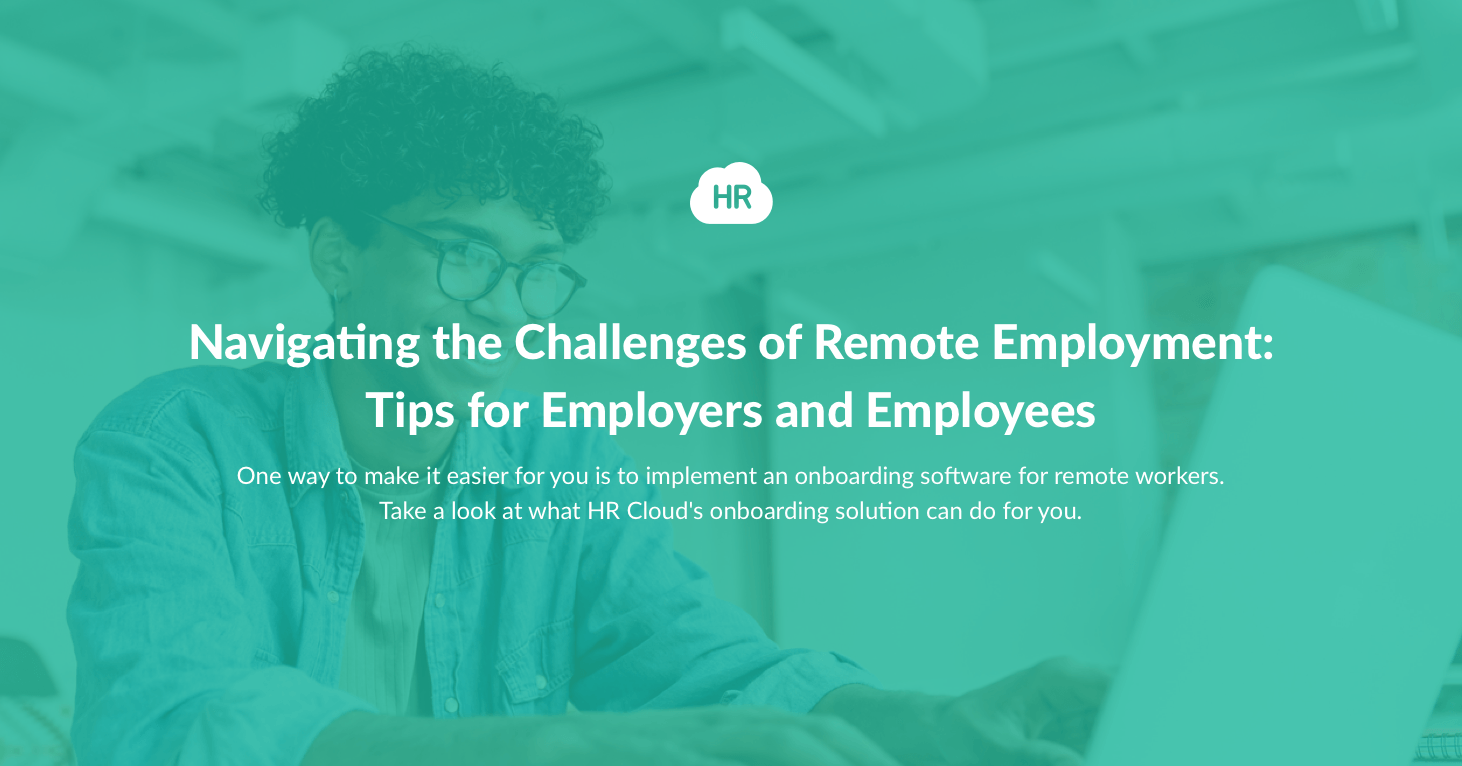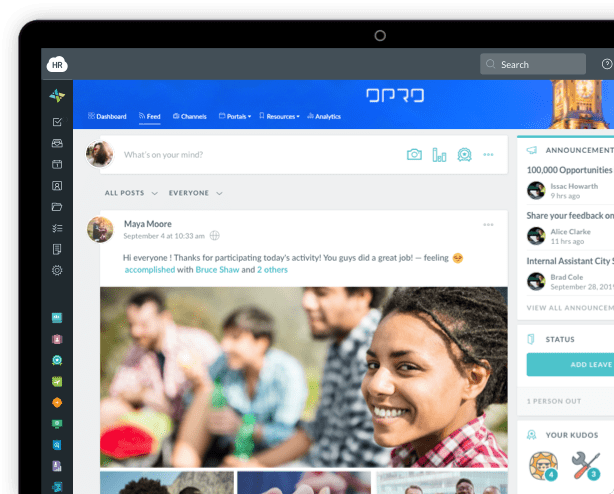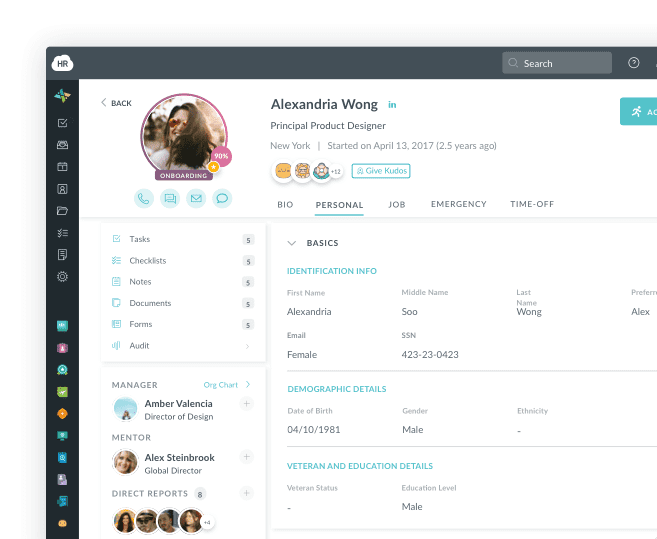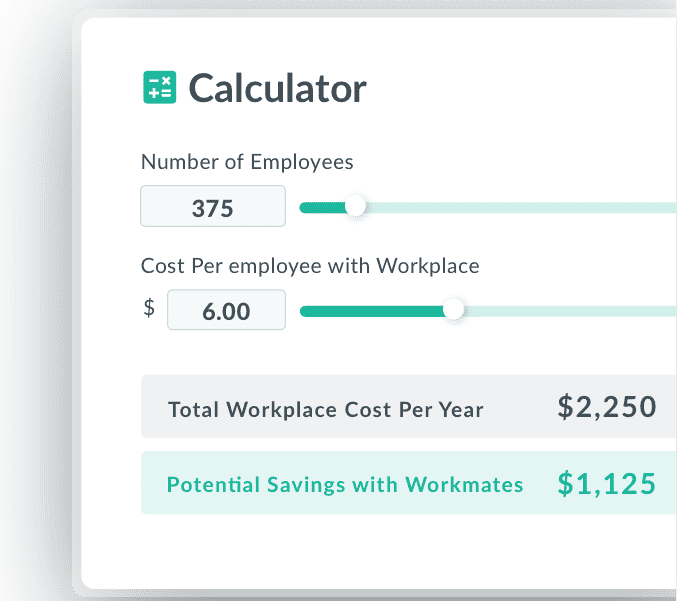Navigating the Challenges of Remote Employment: Tips for Employers and Employees

While remote work offers many benefits, such as flexibility, reduced commuting time, and increased productivity, it also comes with its own set of challenges. In this article, we'll provide some tips for both employers and employees to help them overcome the challenges of remote employment. Remote work brings about numerous benefits, including flexibility, increased productivity, and reduced costs. However, working remotely also presents several challenges, such as isolation, communication barriers, and difficulty with accountability. In this article, we will explore some tips for employers and employees to navigate the challenges of remote employment.
One way to make it easier for you is to implement an onboarding software for remote workers. Take a look at what HR Cloud's onboarding solution can do for you.
Establish clear expectations:
One of the biggest challenges of remote work is ensuring that everyone is on the same page. When employees work remotely, it's important to establish clear expectations regarding communication, work hours, and deliverables. Be sure to communicate these expectations clearly and consistently to avoid confusion or misunderstandings. Establishing expectations early on can help employees stay focused and productive and can prevent potential issues down the road. Remote employment can make it challenging to maintain employee engagement. To improve engagement, consider the following strategies: Communication, virtual team building, recognition and rewards, professional development and flexibility. By implementing these strategies, remote employers can improve employee engagement, motivation, and satisfaction.
Provide the necessary tools and technology:
Remote workers need access to the right tools and technology to do their jobs effectively. This includes access to communication tools like video conferencing software, project management tools, content management system (CMS) and cloud storage solutions, Desktop-as-a-Service (DaaS) solution, and even virtual mailbox solutions. Providing employees with the necessary tools and technology can help them stay connected and engaged, which is essential when working remotely. Using these tools allows you easy collaboration on content creation and management, it also provides you a centralized location for all digital content while making it faster and more efficient. Integration with open APIs to your corporate enterprise systems and external cloud providers to enable inter-application workflows and data retrieval. All of this helps you store, access, and visualize any relevant data from any of your sources.

Salary:
One of the most significant challenges of remote work is ensuring timely and accurate financial payments. These services offer fast, secure, and reliable payment processing, making it easy for employers to pay remote employees, regardless of their location. Employers must ensure that remote employees are paid on time and receive the correct compensation through appropriate cross-border payment methods. One way to ensure accurate payment is to use reliable payment processing services. These services offer fast, secure, and reliable payment processing, making it easy for employers to pay remote employees, regardless of their location. These can range from benefits that make an employee's work-life easier to navigate, like virtual credit cards for employees in managerial roles to more customized benefits based on lifestyle. One of these methods is benefit programs such as retirement benefits, health insurance plans, paid time off, equity, and many more. They can have a significant impact on employee engagement and retention.
Establish a routine:
When working remotely, it's important to establish a routine to help you stay focused and productive. Set a schedule for when you'll start and end work each day, take breaks, and engage in other activities. Creating a routine can help you avoid distractions and stay on track, which is essential when working remotely. This includes setting a regular work schedule, taking breaks as needed, and maintaining a healthy work-life balance. It is also essential to communicate effectively with supervisors and coworkers, providing regular updates on work progress and being responsive to feedback. It is also important to take care of one's physical and mental health, including taking breaks throughout the day, getting regular exercise, and seeking support when needed.

Stay connected with colleagues:
When working remotely, it's easy to feel disconnected from colleagues. Make an effort to stay connected by scheduling regular check-ins or participating in virtual team-building activities. Staying connected with colleagues can help you feel more engaged and invested in your work and can also help you build strong relationships with your coworkers.
Communicate with your employer:
Communication is key when working remotely. Make sure to communicate regularly with your employer to stay on top of expectations, deliverables, and any potential issues. Keep your employer informed about your progress and any challenges you may be facing. By communicating regularly, you can avoid misunderstandings and ensure that everyone is on the same page. For employers, it is essential to establish clear communication channels and expectations for remote employees. This includes setting expectations for communication and work schedules, as well as outlining the tools and platforms that will be used to stay connected. It is also important to provide adequate training and support for remote employees, including access to necessary software and hardware, as well as IT support. Providing regular feedback and recognition for good work is also critical to maintaining employee morale and productivity.
Take Advantage of E-Forms, Time-Off Tracking, and Other Powerful Features to Help Drive Your Bussines
Learn More about HRMS
Set boundaries:
Working remotely can sometimes blur the line between work and personal life. It's important to set boundaries to ensure that you're able to disconnect and recharge after work hours. Set clear boundaries around when you're available and when you're not, and avoid checking work emails or messages outside of work hours. This can help you maintain a healthy work-life balance and prevent burnout.
Conclusion
Remote work offers many benefits, but it also comes with its own set of challenges. Employers and employees must navigate these challenges to ensure that remote work is a success. By following the tips outlined above, employers can help their employees stay engaged and productive, while employees can stay focused and avoid burnout. With clear expectations, the right tools and technology, and a focus on communication and self-care, remote work can be a viable option for many organisations and individuals. HR Cloud’s Onboard solution automates the entire field of onboarding approach to save time, increase data accuracy, and help ensure compliance with industry regulations and requirements. Onboard solutions help to save so much valuable time and effort while increasing data accuracy, improving compliance and achieving the best results.
Find Out How Much You Can Save by Switching to Workmates.
and save upwards of 60%

Author Bio:
This article is written by a marketing team member at HR Cloud. HR Cloud is a leading provider of proven HR solutions, including recruiting, onboarding, employee communications & engagement, and rewards & recognition. Our user-friendly software increases employee productivity, delivers time and cost savings, and minimizes compliance risk.
Keep Reading
Balancing Technology and the Human Touch in Employee Engagement
Companies are taking employee engagement very seriously because it is one of the ways of
Building Strong Teams: The Power of Team Bonding Exercises
Never overestimate the power of collaboration as a core element of effective team


